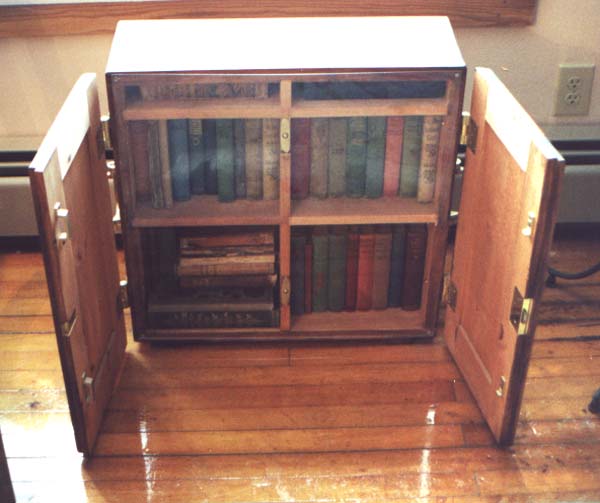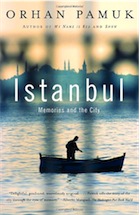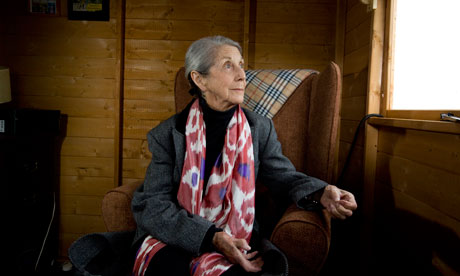La mort de Léon Tolstoï le 20 novembre 1910 dans une petite gare du sud de la Russie prit une dimension mythologique au moment même où elle se produisit. Pathé, le pionnier des actualités filmées, réalisa l’une de ses premières images animées autour de cet événement. Lénine avait déclaré deux ans auparavant que Tolstoï était «un miroir de la révolution». Les révolutionnaires communistes, comme le gouvernement russe, guettèrent l’effet qu’aurait la mort du grand anarchiste sur le peuple russe, qui sentit qu’il n’avait pas seulement perdu un grand artiste mais aussi la voix la plus éloquente qui ait jamais tonné en sa faveur contre de monstrueuses injustices.
À des questions aussi apparemment simples que la manière dont il nous faut vivre, il donnait des réponses qui ébranlaient l’âme même des tsars, des armées, de la police secrète et des inquisiteurs de l’Église. À la fin de sa vie, des millions de personnes du monde entier étaient suspendues à ses lèvres. Une semaine après sa mort, dans la cafétéria d’une gare moscovite, une femme fit une remarque désobligeante à son propos. Les ouvriers du café l’encerclèrent et le serveur refusa de lui donner son thé.
Si actuel
L’anniversaire de la mort d’un écrivain est généralement l’occasion de réévaluer et de relire son œuvre, mais il est rare d’y voir une incitation à se poser les questions les plus fouillées sur le monde tel qu’il est aujourd’hui et sur nous-mêmes. Et voilà que la mort de Tolstoï nous met au défi de nous poser les questions personnelles et politiques les plus profondes. Difficile de trouver un grand sujet de société auquel le monde actuel soit confronté qui n’ait pas été anticipé et discuté par Tolstoï d’une façon ou d’une autre, qu’il s’agisse de la crise environnementale, du débat religieux (créationnisme contre athéisme) ou du mouvement contre la guerre.Qui fut donc cet homme qui en vint à représenter l’âme de son pays? Tolstoï naquit en 1828, dans une famille de diplomates et de courtisans parmi les plus éminents de Russie. Il s’engagea dans l’armée et participa à la guerre de Crimée. En 1862, il se maria, fonda une famille qui allait être conséquente (treize enfants), et initia un programme d’éducation des paysans en créant un vaste réseau d’écoles et en lançant de nouvelles méthodes agricoles. Après les voyages de sa jeunesse, il passa la plus grande partie de sa vie dans le domaine familial d’Iasnaïa Poliana, à environ 200 km au sud de Moscou.
Dans ses Récits de Sébastopol et dans les récits caucasiens intitulésLes Cosaques se révèle très tôt son génie pour les descriptions réalistes et détaillées non seulement de la vie militaire mais également de la nature. La volonté de découvrir la meilleure façon de vivre est au cœur de tous les écrits de Tolstoï. Elle s’insinue dans les songeries du prince André et de Pierre dans La Guerre et la Paix, ainsi que dans les questionnements intimes de Lévine dans Anna Karénine.
Après avoir écrit ce roman, Tolstoï subit une crise de la quarantaine et devint un fervent orthodoxe. Puis, changeant de nouveau d’avis, il décida que les enseignements de l’Église n’avaient pas de sens. L’important étant ce que Jésus lui-même avait enseigné. Et l’enseignement de Jésus, selon Tolstoï—qui réécrivit littéralement les évangiles—c’était le pacifisme, l’anarchie, pas de gouvernement, pas d’armée, pas d’aristocratie, pas de quête des richesses. Vint s’y ajouter un végétarisme de plus en plus obsessionnel.
Une vie de prophète
La nouvelle biographie de Rosamund Bartlett: Tolstoy: A Russian Lifem’a fait découvrir Tolstoï de façon plus vivante qu’aucune autre avant elle. Universitaire et traductrice, Bartlett est imprégnée de la langue et de l’histoire de la Russie. À chaque étape de la vie de Tolstoï, une présence gigantesque s’impose à nous: quand il planta une pommeraie dans sa propriété d’Iasnaïa Poliana, par exemple, ce fut la deuxième plus grande d’Europe. Né dans l’opulence, il en vint à mépriser sa fortune. Lorsqu’il entreprit de soulager les victimes de la famine, il devint une véritable association humanitaire à lui tout seul et galvanisa tout un pays pour sauver les affamés.Pour le simple lecteur, il n’est pas aisé d’appréhender l’échelle et l’étendue des intérêts et des réalisations de Tolstoï. Avoir tout réuni en moins de 500 pages est une prouesse en soi. Pourtant, Bartlett ne semble jamais précipitée et se donne tout le temps de nous dépeindre les décors, pour faire monter les effluves de la terre et de l’herbe russes jusqu’à nos narines.
Dans ses pages, elle expose la différence entre la lointaine et raffinée Saint-Pétersbourg et Moscou, où Tolstoï acheta à contrecœur une maison de ville; tout comme elle transmet la soif de l’écrivain non seulement pour l’idylle pastorale d’Iasnaïa Poliana, mais aussi pour les étendues désertes de Samara, pour lesquelles il éprouva un attachement qui grandit sans cesse. Il s’y rendit au départ pour boire du koumis (lait de jument fermenté) pour sa santé, mais son caractère obsessionnel, qui s’intéressait à tout, ne tarda pas à le rendre amoureux du peuple qui y vivait, les Bachkirs, des musulmans turcophones. Il acheta près de 3.000 hectares de terre bachkire et obligea sa famille à passer bien plus de temps qu’elle ne l’aurait voulu dans des tentes, à boire du koumis dans des cuves de cuir tandis qu’accompagné de son percepteur de grec, il lisait Hérodote.
Il ne s’agit pas d’une hagiographie: Bartlett admet qu’il était un mari impossible et que son manque total d’humour le rendait pour le moins rébarbatif. Elle parvient à un parfait équilibre entre admiration pour l’art de Tolstoï et respect pour sa vie de prophète. La tradition veut qu’après Anna Karénine, le romancier perdit son dynamisme, fit une dépression nerveuse et se réinventa en prophète cinglé tonnant des appels de clairon moraux. L’écrivain Vladimir Tchertkov, grand prêtre du tolstoïsme à qui presque tous ses biographes font une fort mauvaise presse, l’encourageait à suivre ses marottes.
Mais Bartlett m’a fait réviser mon opinion sur Tchertkov–en plus d’introduire le délicieux ragot qu’il était presque certainement le demi-frère illégitime du tsar. C’était un fanatique, peut-être, mais il faisait aussi preuve d’un courage impressionnant. Un des excellents points de la biographie de Bartlett est qu’elle voit la nécessité de poursuivre l’histoire jusqu’à l’époque moderne. Elle suit la destinée des tolstoïens russes jusqu’à l’ère stalinienne.
Tchertkov, dont la foi dans l’anarchisme chrétien pacifiste qui fut une des marques du tolstoïsme ne vacilla jamais, poursuivit courageusement sa carrière de principal éditeur des œuvres complètes de Tolstoï, sollicitant vainement des fonds auprès de Staline pour finir la tâche, sans jamais compromettre ses convictions au milieu des horreurs qui ensanglantèrent cette époque. Quand cinq tolstoïens furent arrêtés en 1929 et condamnés aux travaux forcés, Tchertkov intercéda en leur faveur, tout comme il tenta héroïquement de maintenir la Société moscovite végétarienne Léon Tolstoï en vie, sans succès.
À la première lecture de La Guerre et la Paix, il apparaît clairement que Tolstoï écrit avec l’ampleur et l’envergure d’Homère. Nulle part ailleurs que dans L’Iliade ne trouvons-nous une si prodigieuse association de détachement artistique de la joie et de la souffrance d’une part, et, de l’autre, une telle sympathie et un engagement si passionné. Cette vérité paradoxale existe dans ces deux chefs d’œuvre européens, et le livre de Bartlett nous explique comment ces deux qualités divines, l’indifférence et l’empathie, étaient constamment présentes dans l’âme de Tolstoï.
Anthony Briggs, professeur de littérature russe, publia une excellente traduction anglaise de La Guerre et la Paix en 2005 pour les éditions Penguin. C’est une version vivante et très lisible, dans laquelle il a traduit les nombreux passages en français dans le même anglais familier qu’il utilise pour traduire le russe. Certains lecteurs n’ont pas aimé ce procédé, tout comme ils n’ont pas apprécié qu’il mette dans la bouche du général Koutouzov les véritables jurons que proférait ce vieux général (en réalité vraiment mal embouché) plutôt que des astérisques. Et Briggs a sans aucun doute perdu quelque chose en dissimulant aux lecteurs anglais découvrant l’œuvre pour la première fois le fait que l’aristocratie russe ne parlait pas russe.
J'ai changé d'avis
La très brève biographie de Tolstoï écrite par Briggs et publiée au début de l’année (chez Hesperus Press) adopte la vision qui, je pense, est devenue une orthodoxie, selon laquelle le Tolstoï tardif et prophétique était moins important que le romancier qui écrivit les premières œuvres. Briggs cite ce que j’ai moi-même écrit dans ma propre biographie du grand homme: que «plus nous possédons d’éléments sur Tolstoï, moins il a de sens». J’ai écrit ces mots il y a plus de vingt ans, et les années qui se sont écoulées depuis ont changé mon point de vue. Tolstoï a un sens très clair à mes yeux aujourd’hui. L’anniversaire de sa mort nous donne l’occasion de nous rendre compte qu’il n’y a pas deux Tolstoï, le romancier et l’anarchiste sectaire. Il n’y en a qu’un. La Guerre et la Paix n’est pas seulement une grande saga nationale et familiale, c’est un roman sur la régénération personnelle et nationale. Tolstoï fut l’un des grand révélateurs de vérité de l’histoire, le premier des grands dissidents et leur saint patron. Dans un monde dominé par des dirigeants véreux, des guerres injustes, la méchanceté et la corruption, et, surtout par les mensonges, Tolstoï devint ce que Dante appelait un «parti à lui tout seul» et se débattit contre tous les bords.Certes, l’anarchisme chrétien de Tolstoï était inconsistant à de nombreux égards, mais quand on sait que les ennemis dans sa ligne de mire étaient l’épouvantablement égoïste famille royale et une église orthodoxe soutenant l’un des régimes politiques les plus iniques de l’histoire de l’Europe (et bénissant les armes sur le champ de bataille au nom du Christ), il est difficile de ne pas acclamer le vieux prophète barbu et de ne pas passer outre les méchancetés qu’il a pu infliger à sa femme.
Y a-t-il une vanité, presque une frivolité dans la position anarcho-pacifiste? Lorsqu’on sait les excès ultérieurs de Staline et d’Hitler, la mort de Tolstoï en 1910 peut apparaître comme le triste trépas d’un rêve utopiste. Mais l’histoire de l’Afrique du Sud—pour ne choisir qu’un seul exemple—démontre la vigueur et la force de l’idée tolstoïenne. C’est en Afrique du Sud que Gandhi s’enflamma pour les écrits de Tolstoï et qu’il commença à mettre en pratique la politique de résistance passive qui finirait par avoir raison de l’Empire britannique.
Les récents conflits en Irak ou en Afghanistan ne laissent pas penser que la guerre ait jamais pu être une solution aux problèmes humains. Le rejet de Tolstoï non seulement de la guerre et de la violence, mais du concept même de gouvernement, détient encore un grand potentiel pour changer notre monde. En tout cas, c’est ce que j’en suis venu à espérer.
En marchant sur ses pas, depuis cette gare provinciale isolée d’Astapovo jusqu’au domaine ancestral d’Iasnaïa Poliana, une fois de plus j’ai été stupéfait par le génie qui a produit les Récits de Sébastopol, Les Cosaques, La Guerre et la Paix, La mort d’Ivan Ilitch,Anna Karénine et Résurrection – pour ne nommer que quelques-uns de ses chefs-d’œuvre. Moi aussi, tout comme le peuple en 1910, je me suis senti submergé par la sensation que si seulement nous pouvions vivre comme il nous pressait de le faire dans ses derniers écrits prophétiques, nous trouverions la rationalité au milieu du chaos.
A.N. WilsonEcrivain et chroniqueur anglais
Traduit par Bérengère Viennot
Cet article a été publié à l’origine dans le Financial Times.












